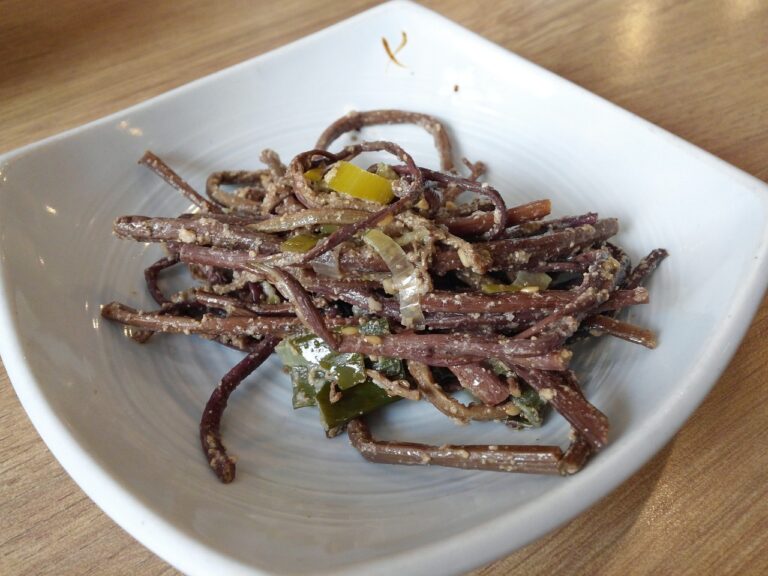Exploring Traditional African Medicine
Traditional African healing practices have a rich history deeply rooted in the traditional beliefs and spiritual customs of various African cultures. These practices often involve a holistic approach to healing, focusing on not just the physical ailment but also the emotional and spiritual well-being of individuals. Through the use of rituals, ceremonies, and medicinal herbs, traditional healers strive to restore balance and harmony within the body and the community.
One common aspect of traditional African healing practices is the belief in the interconnectedness of all living beings and the natural world. Traditional healers often work in harmony with nature, drawing on the healing properties of various plants, roots, and minerals to treat a wide range of ailments. The knowledge of these healing herbs and plants is often passed down orally from generation to generation, forming a vital part of the cultural heritage of many African communities.
The History of Traditional African Medicine
Traditional African medicine has a rich and diverse history that dates back thousands of years. In various African cultures, healers were highly respected for their knowledge of herbal remedies, spiritual rituals, and divination practices. These healers passed down their skills and wisdom through oral traditions, teachings, and apprenticeships, cultivating a deep understanding of the interconnectedness between the physical, mental, and spiritual aspects of health and well-being.
The practice of traditional African medicine was deeply intertwined with cultural beliefs, social structures, and the natural environment. Healers often served as mediators between the physical world and the spiritual realm, using their expertise to diagnose and treat illnesses, offer spiritual guidance, and provide solutions to personal and communal challenges. The use of medicinal plants, animal products, and ritualistic ceremonies played a central role in traditional healing practices, reflecting a holistic approach to health that emphasized balance and harmony within the individual and the community.
Common Healing Herbs and Plants in African Medicine
Many traditional African healing practices utilize a variety of healing herbs and plants to treat a wide range of ailments. These natural remedies have been passed down through generations and play a significant role in the history of traditional African medicine. From treating common colds and fevers to more complex medical conditions, these herbs and plants are valued for their healing properties.
One common healing herb used in African medicine is the famed African ginger. Known for its anti-inflammatory and digestive properties, African ginger is often used to alleviate stomach issues and promote overall well-being. Another popular plant is the African aloe, which is believed to have healing and moisturizing effects on the skin, making it a common ingredient in many traditional skincare products.
• African ginger is known for its anti-inflammatory and digestive properties
• African aloe is believed to have healing and moisturizing effects on the skin
In addition to these well-known herbs, there are many other plants used in traditional African medicine for their healing properties. For example, the moringa tree is highly valued for its nutritional benefits and has been used to treat malnutrition in many communities. Another common plant is the rooibos plant, which is often brewed into a tea that is believed to have antioxidant properties and promote overall health.
Traditional healers in Africa often combine different herbs and plants to create powerful remedies tailored to individual needs. These natural treatments not only address physical ailments but also focus on promoting holistic wellness by balancing the mind, body, and spirit. The use of healing herbs and plants in African medicine reflects a deep connection with nature and an understanding of the importance of maintaining harmony within oneself.
As interest in natural remedies grows globally, more people are turning to traditional African healing practices as an alternative or complementary approach to modern medicine. The rich tradition of using healing herbs and plants in African medicine continues to thrive today, offering valuable insights into the potential benefits of incorporating natural remedies into our daily lives.
• Moringa tree is valued for its nutritional benefits
• Rooibos plant brewed into tea for antioxidant properties
What are some common healing herbs used in African medicine?
Some common healing herbs used in African medicine include aloe vera, neem, moringa, ginger, and turmeric.
How are these healing herbs and plants typically used in African medicine?
These healing herbs and plants are often used in teas, tinctures, poultices, and oils for various ailments and health conditions.
Are there any safety concerns to keep in mind when using these healing herbs and plants?
While many of these herbs and plants are generally safe for consumption, it is important to consult with a healthcare professional before using any new herbal remedies, especially if you are pregnant, breastfeeding, or taking medications.
How can I incorporate these healing herbs and plants into my daily routine?
You can incorporate these healing herbs and plants into your daily routine by adding them to your meals, brewing them into teas, or using them topically in skincare products.
Are there any cultural or spiritual aspects to consider when using these healing herbs and plants in African medicine?
Yes, traditional African healing practices often involve a combination of physical, mental, and spiritual healing, so it is important to approach the use of these herbs and plants with respect for their cultural significance.







